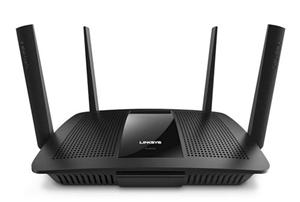They look the same, they sometimes act the same. It’s hard to tell the difference between a router and an access point, especially since one can easily act like the other from a customer perspective. But if you really understand what they do, it’s easy to understand the difference.
What is a router?
A router is your link to the outside world. All the information in your network stays in your network and it all goes through a single device when it goes out to the internet. This device is part tollbooth, part traffic cop, part automated direction-giver. It knows who is making a request for information from the internet and tags that request as it goes out, so when it comes back, it can be sent to the right place. If happens millions of times a second and it’s so reliable we don’t give it another thought.
A router is your gateway to the internet. It’s a critical part of the system. It keeps all the information in your home networks safe and keeps traffic on your local network running fast.
What is an access point?
An access point provides wireless access to a wired network. It’s the thing that provides your Wi-Fi so connections can be made between your wireless devices and the router, or between any device that’s on your network. It makes a transparent link between a wired local-area network and the wireless network it creates. It doesn’t communicate with the internet directly.
Access points add extra capacity where it’s needed. Newer systems use access points to help deal with dead spots in home networks. After all, your typical router isn’t going to be able to blanket an entire house.
What is the difference?
…and about now you’re shaking your head because you have that one box on your desk and it provides Wi-Fi and also connects you to the internet. So which is it? Access point or router? Answer: It’s both. Most consumer routers are also access points and switches (meaning they can take more than one wired connection.) In the world of the big commercial stuff, though, the devices are often separate.
It’s common to put access points throughout a large building so that you can get Wi-Fi everywhere, and you wouldn’t want those devices to be routers because they don’t form a bridge between you and the internet. There’s usually only a need for one router unless you use multiple internet service providers. Standalone Wi-Fi access points can provide wireless networking to areas without it or take a non-wireless device like an old printer and make it wireless.
Why should you buy a router or access point from Solid Signal?
When you shop for routers and access points at Solid Signal, you’re looking at the top of the line. Businesses, even small ones, need the kind of top quality equipment that homes don’t. You’ll find industrial-grade access points and routers that are designed to deliver reliable service year in and year out. And that’s the big difference – that’s not the kind of thing you’ll find from most online shops, even the big ones.
Plus, you’ll get a dedicated rep to talk to when you call 888-233-7563. You certainly can’t say that about some of the other, larger e-commerce sites. They don’t have phone support at all, and all of our phone support comes from our 100% US-based call center.





